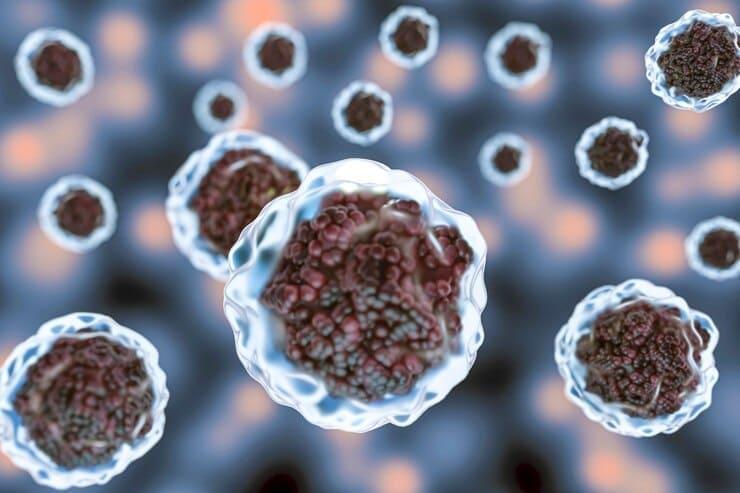KEY TAKEAWAYS
- The phase 1/2 trial aimed to assess XTX202’s safety in advanced solid tumors in Phase 1 and efficacy in metastatic RCC and melanoma in Phase 2.
- Increased CD8 in tumor biopsies hints at XTX202’s TME activation. Manageable toxicity allows higher doses.
- Additional information will be provided later, including updated clinical outcomes, pharmacokinetics, and comprehensive pharmacodynamic data.
Aldesleukin, while offering therapeutic benefits, demands high systemic doses (8.4 million IU/kg, equaling 0.518 mg/kg per weekly cycle), often causing life-threatening toxicities. ‘Non-alpha’ interleukin-2 (IL-2) agents displayed limited efficacy due to observed toxicities, hindering dosage increase.
To tackle IL-2’s systemic toxicity, Diana Hanna and her team of researchers engineered XTX202, an investigational tumor-activated IL-2βγ with an extended half-life. This unique design remains inactive until activated by proteases found abundantly in the tumor microenvironment (TME).
Researchers assessed XTX202’s safety in patients with advanced solid tumors in Phase 1 and its effectiveness in treating metastatic renal cell carcinoma (RCC) and melanoma in Phase 2 of the study. XTX202 is administered intravenously to outpatients every three weeks.
By June 15, 2023, a total of 37 patients, including 22 males, with a median age of 65 years (ranging from 36 to 82) and a median of 4 prior lines of therapy (ranging from 1 to 14), underwent treatment with XTX202 in Phase 1.
It included 6 different dose levels, varying between 0.27 and 2.8 mg/kg. The predominant cancer types treated included colorectal (5 cases), RCC (4 cases), and non-small cell lung cancer (4 cases).
Regarding treatment-related adverse events, those with an incidence of 10% or more across all grades included fatigue (19%), decreased lymphocyte count (16%), pyrexia (11%), and dizziness (11%).
Grade 3 treatment-related adverse events were observed in reduced lymphocyte count (8%), increased AST (3%), increased ALT (3%), elevated blood bilirubin (3%), and myalgia (3%). No grade 4 or 5 adverse events were reported, and there were no indications of vascular leak syndrome or hemodynamic compromise.
One case of dose-limiting toxicity occurred, displaying a reversible grade 3 elevation of AST and ALT at DL4 (1 mg/kg). All 6 dose levels, including the highest at 2.8 mg/kg, have been cleared. The plan for phase 2 involves evaluating two dose levels, with the initial recommended phase 2 dose set at 1.4 mg/kg. Additionally, dose escalation up to 4 mg/kg is still underway in Phase 1.
An analysis of pharmacokinetics revealed an exposure that scaled with the dose administered. The calculated fraction of activated XTX202 in the peripheral blood remained minimal, ranging from 0% to 3%.
This evidence, along with minimal peripheral XTX202 activation, showed no notable increases in peripheral CD8 or Tregs (regulatory T cells) in available samples taken through two cycles of therapy.
An average 3.4-fold increase in CD8 cells was observed in the four on-treatment tumor samples available for analysis. The observed rise in CD8 cells within tumor samples aligns with IL-2 biological responses, indicating that XTX202 is specifically activated in the tumor microenvironment (TME).
This interpretation is supported by confirmed pharmacokinetic (PK) data and the manageable toxicity experienced even at doses above 2.8 mg/kg in outpatient settings.
Researchers will further report additional data, including updated clinical data, PK information, and detailed pharmacodynamic data encompassing both peripheral blood and accessible tumor biopsies.
The study is sponsored by the Xilio Development, Inc.
Source: https://jitc.bmj.com/content/11/Suppl_1/A695
Clinical Trial: https://clinicaltrials.gov/study/NCT05052268
Hanna D, Zakharia Y, Goel S, et al611 XTX202–01/02–001, Phase 1/2 first-in human study of XTX202, a masked, tumor-activated IL-2βγ, in patients with advanced solid tumors: results from phase 1Journal for ImmunoTherapy of Cancer 2023;11:doi: 10.1136/jitc-2023-SITC2023.0611



